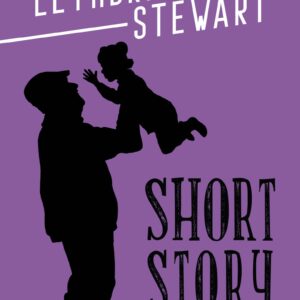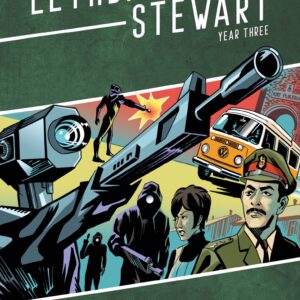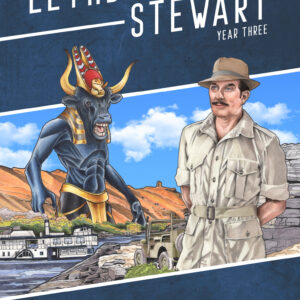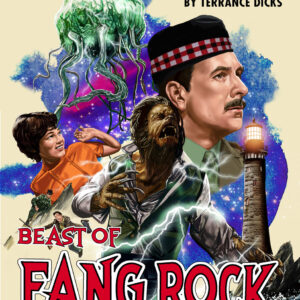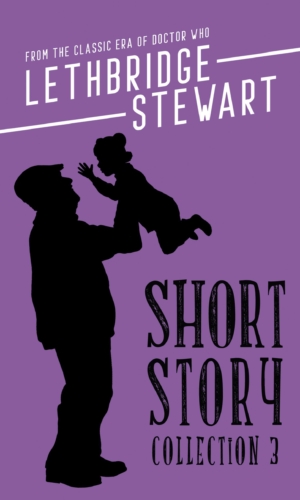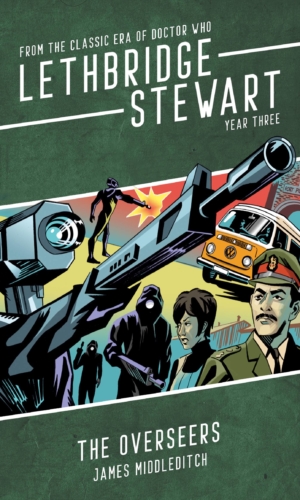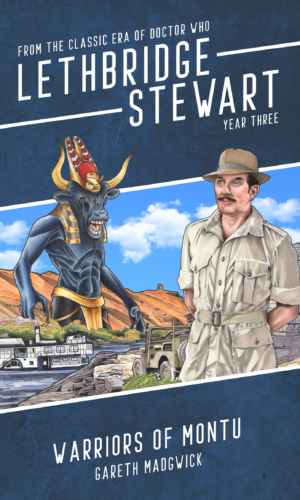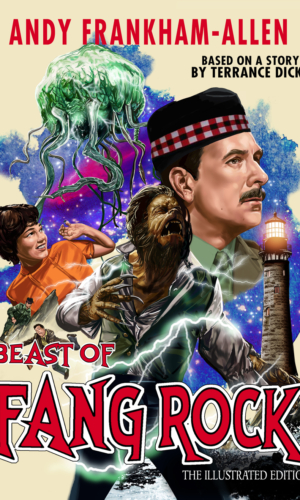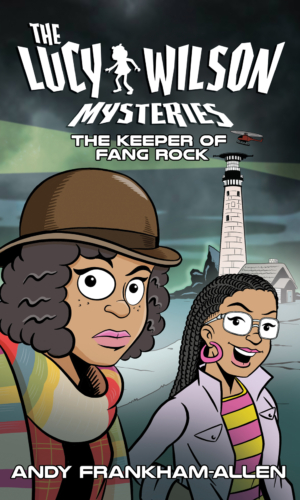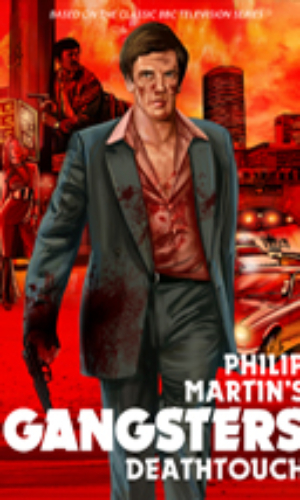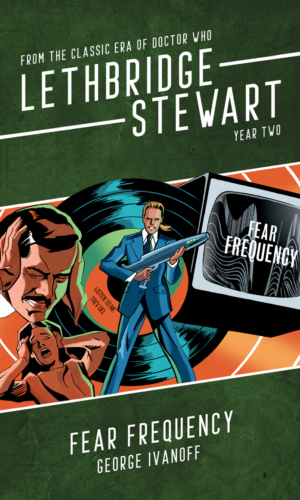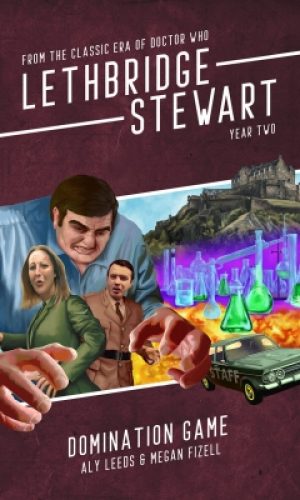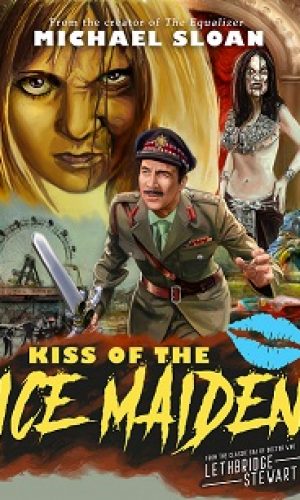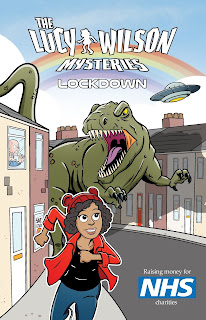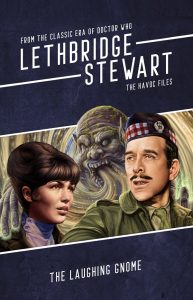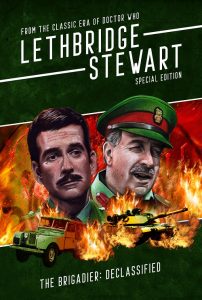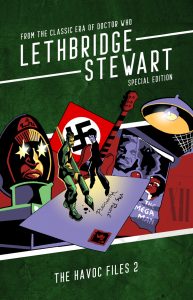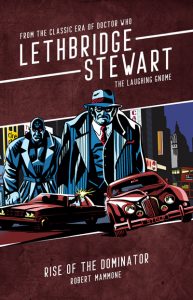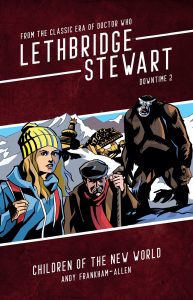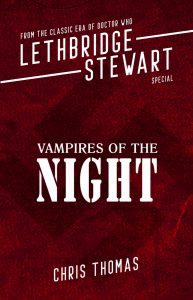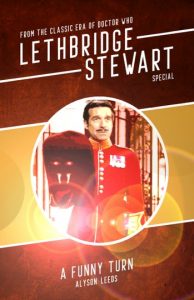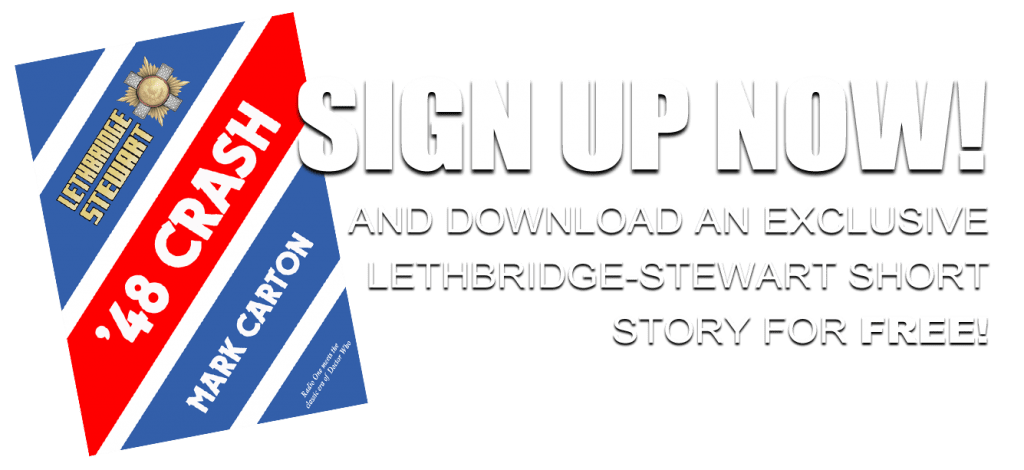Home | The Premise | The Minds Behind the Fiction |
Interviews: Andy Frankham-Allen & Shaun Russell | Hannah Haisman | Simon Williams | David A McIntee |
Interview with David A McIntee conducted in September 2015.
How did you come to be involved in Lethbridge-Stewart?
‘I was asked by Andy Frankham-Allen at Candy Jar, because he liked what I’d done with some of the Doctor Who books – in particular Face Of The Enemy, which was very UNIT-heavy, with the Brig as a lead. Well, given how much I love the character, and could see lots of cool ideas to do with a pre-UNIT Lethbridge-Stewart, I wasn’t going to turn that down. There’s just so much opportunity with the character at that stage of his life.’
In what ways did writing for this spin-off series differ from writing for the parent series?
‘Obviously one had to be a bit more careful about continuity and copyright, as there’s a more limited set of rights to play with, and I think it means one can’t have the thick Brig (or others) that sometimes appeared (the one who thinks an alien planet is Cromer, for example), because you don’t have this alien bloke to look smart by comparison. And, IMO that’s a good thing, because you want everybody to be portrayed at their best – these are supposed to be the elite, after all.’
Did you come across any unanticipated difficulties in writing for the modern Doctor Who market, which is more directed at the ‘general’ fan, and less at the ‘core’ fandom that kept the property alive during the ‘90s and early ‘00s?
‘I’m not sure I’ve actually written for this modern general market, TBH – my last Doctor Who book was in 2004, before the series returned, and I reckon that Lethbridge-Stewart will appeal to the core adult fans seeking nostalgia. So… I don’t know yet, because I don’t believe I’ve had the experience.’
 The cover suggests a link to Inferno. In 1998 you wrote The Face of the Enemy, which was a sequel to Inferno. Can we expect some connection between that novel and The Schizoid Earth?
The cover suggests a link to Inferno. In 1998 you wrote The Face of the Enemy, which was a sequel to Inferno. Can we expect some connection between that novel and The Schizoid Earth?
‘Yes, in some ways, but not necessarily in the way you’d think. For example, what you see on the cover isn’t what you think you see on the cover. And there is at least one linking character.’
What can readers expect from The Schizoid Earth?
‘‘60s style Spy-Fi, action, thrills, explosions, sudden mad reversals and unexpected cliffhangers…’
What do you feel contributes to the enduring popularity of Alistair Lethbridge-Stewart?
‘Honestly, Nick Courtney. The character’s strengths, when written properly, are his intelligence and loyalty and honour, which I think are also timeless qualities we look for in our fictional heroes – especially military type ones. But Nick was, is, and always will be at the heart of it.’
What was your first Doctor Who novel, and how did that come about?
‘White Darkness – I’d fancied trying a novelisation even before the original novel line got started (and I’ve still never done a novelisation of anything, but would love to, just for the experience). In fact I did some sample text for an expanded novelisation of Mission to the Unknown, because I thought nobody else would be daft enough to try to turn it into a book, and didn’t anticipate them just doing it as a chapter in The Daleks’ Masterplan.
‘Target had been taken over by Virgin, and when they wanted to do original Doctor Who novels, I pitched one called Moebius Trip, which I’ll mention again later, but was asked to try again, and I think White Darkness was the second or third pitch, because I wanted to do something with a period setting (I love that side of the series, what with the time machine and all), and one that wasn’t set in the Home Counties. Peter Darvill-Evans liked it and off we went.’
 You’ve been writing Doctor Who novels since 1993, and have written at least one for all the ‘classic’ Doctors. What kind of challenges did each Doctor present you?
You’ve been writing Doctor Who novels since 1993, and have written at least one for all the ‘classic’ Doctors. What kind of challenges did each Doctor present you?
‘I like to have a tie-in character’s voice in my head, from the actor who played the role, so that made Eight a bit problematic, as, at the time, Paul McGann had had about forty minutes of screen time. (I’d love to have another go now that we’ve had the audios.) On the other hand, I never liked Sylvester McCoy’s performance as Seven, so I always found myself sort of writing against him, which is weird.
‘Patrick Troughton’s another one where lack of surviving episodes meant there was less to go on, but at least there were always audios of the missing episodes.
‘The ones that most surprised me, actually, were the Third Doctor – who actually has a lot less depth to explore and play around with than the others – and the First, who turned out to be a lot more layered and interesting, and so kind of brought himself out quite naturally but unexpectedly.
‘Six I was more inspired by the Doctor Who Magazine comics, and Four and Five were the ones I really grew up with, so they were by far the easiest, living in my head anyway.’
You’ve been involved in Doctor Who publishing for a long time, and have worked with most Doctor Who publishers, including BBC Books, in which way would you say Doctor Who publishing has much changed over the last twenty years?
‘In practical terms, of course, it’s gone from being an open training ground for new writers to invitation-only for a rep company with occasional guest stars, which is a shame. The bigger difference, though, is in how the desired target audience has been redefined. It’s turned from children to SF-reading adults twenty-three years ago, with The New Adventures, then became aimed more at adult fans with The Missing Adventures and Past Doctors Adventures, and then back to a younger readership with the New Series books, although even then we’ve now got the guest star author ones – the Alastair Reynolds and Stephen Baxter ones, and the Gareth Roberts novelisations, for example – being aimed at the adult nostalgia market again. So I suspect really Doctor Who publishing tends to run in cycles. The Wheel Turns, as Mary Morris says in Kinda.’
You’ve written for a lot of Doctor Who big villains over the years, including the Sontarans and the Master. Which was your favourite, and why?
‘To write for? The Master, of course. Equal but opposite, the anti-Doctor… Because with a villain you can do anything. Have him do good things, even, without ruining the character the way you would if you have the hero be too bad. As a more general favourite Doctor Who villain, but not one I wrote for, I love Tlotoxl in The Aztecs, though he’s not actually a villain, rather an antagonist to our heroes. Which is exactly why he’s so great. I basically much prefer when you can have a three dimensional antagonist rather than outright cartoon evil baddie. That said, I still want to write for the Daleks someday.’
You’re no stranger to writing books without the Doctor, does your approach with those differ to novels where the Doctor is the lead?
‘Not really, no – my approach is based on the type or tone of story, rather than which character is the lead. So it varies even when the Doctor is the lead.’
 Who is your favourite Doctor to write for?
Who is your favourite Doctor to write for?
‘Yes. Oh, well, if we’re going to be more specific… I really never expected to say this, cos I’d have expected to say the Fourth, but actually – and as implied by the answer to an earlier question – the First. Which really surprised me.’
Which of the modern Doctors would you most like to write for?
‘I dunno, it’d be cool to complete the set. Ten would be good if it could undo Donna’s mind-wipe. Eleven is so much fun, and Twelve I’d love to just do as Malcolm Tucker, but… I’m gonna say Nine in the end, because I really really wish we’d had more Eccleston, and would love to sort of make that happen.’
Who’s your favourite companion to write for?
‘I think the Ian and Barbara double-act. They’re both modern enough to relate to and distant in time enough to allow for having stuff explained. And they’re just such a well balanced OTP. They’re a joy to write, and that’s largely down to the performances all those years ago.’
You’ve written novels for Star Trek, too, one of a handful of authors to write for both Star Trek and Doctor Who; what would say the differences in approach are, both from the point of view of a writer, and the expectations of the publisher?
 ‘The expectations of the publisher aren’t that different, I don’t think – tie-in publishers pretty much have the same aim for their novels, to support the franchise. Obviously there’s more of a team thing with the Trek stories, as opposed to the Doctor’s individualism and iconoclasm, so you’re more likely to be writing in favour of an ideal than against a state you disagree with. Overall, though, the bigger differences are that there are more hoops to jump through with Trek – synopsis, breakdown, and finished text all have to be approved by different people at different stages (and, TBH I don’t mind this, as I prefer working that way), which wasn’t the case with the Doctor Who books when I was doing them, where it was just the editor’s nod.
‘The expectations of the publisher aren’t that different, I don’t think – tie-in publishers pretty much have the same aim for their novels, to support the franchise. Obviously there’s more of a team thing with the Trek stories, as opposed to the Doctor’s individualism and iconoclasm, so you’re more likely to be writing in favour of an ideal than against a state you disagree with. Overall, though, the bigger differences are that there are more hoops to jump through with Trek – synopsis, breakdown, and finished text all have to be approved by different people at different stages (and, TBH I don’t mind this, as I prefer working that way), which wasn’t the case with the Doctor Who books when I was doing them, where it was just the editor’s nod.
‘Oh, and Trek paid more than Doctor Who did.’
Editor Andy Frankham-Allen was also asked what we can expect from The Schizoid Earth.
‘The rug to be pulled from under you. The cover, I feel, produces certain expectations from long-term fans, and if there’s one thing we like to do, is play on expectations and then do something completely unexpected, which will become clearer as the series progresses. And David has done that brilliantly. It’s something of a dark reflection of The Forgotten Son, and, to utilise a well-worn cliché, Lethbridge-Stewart’s life will never be the same again.’
The Schizoid Earth can be ordered here. Any pre-orders between now and September 25th will receive the free short story Legacies.


